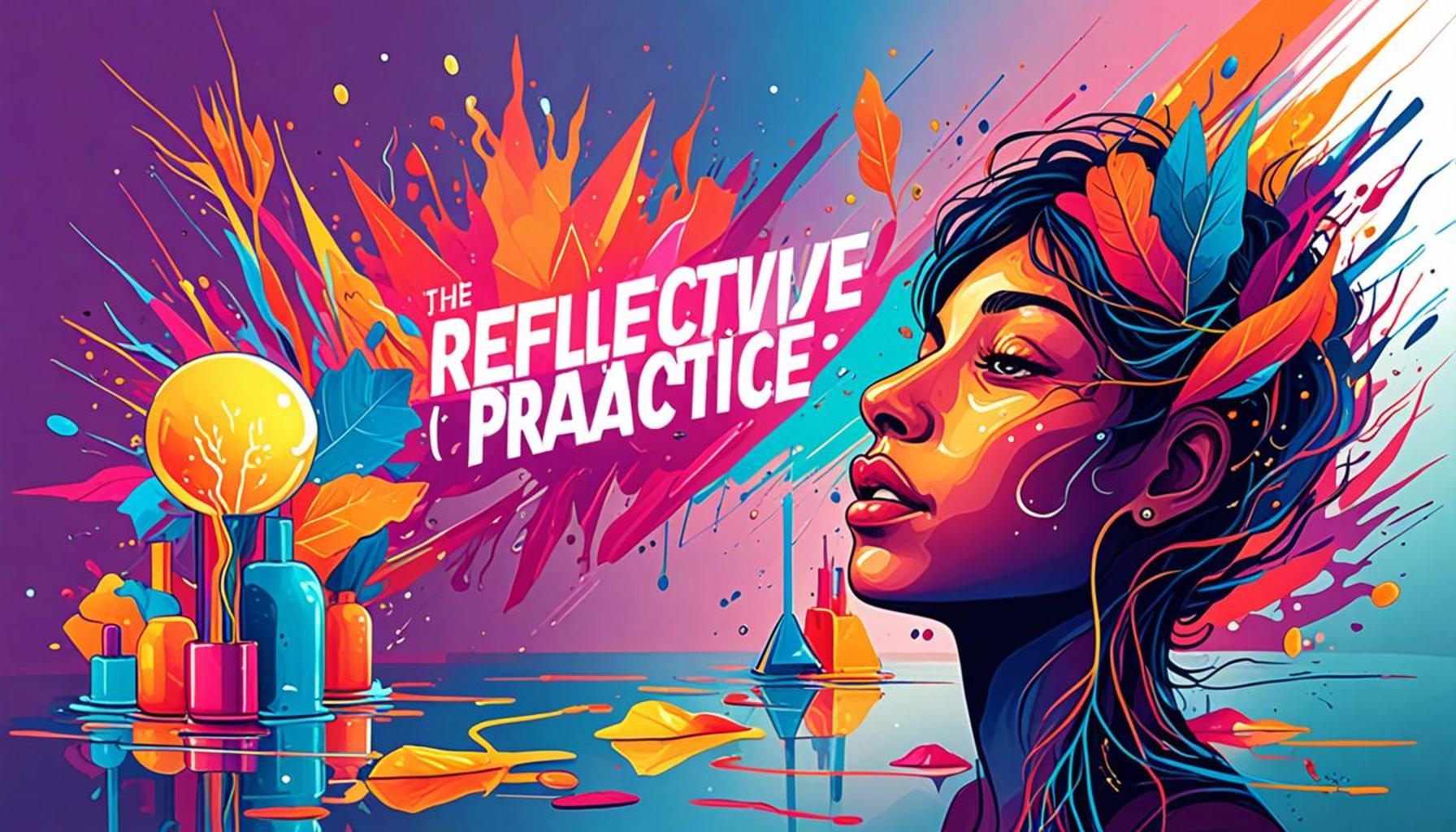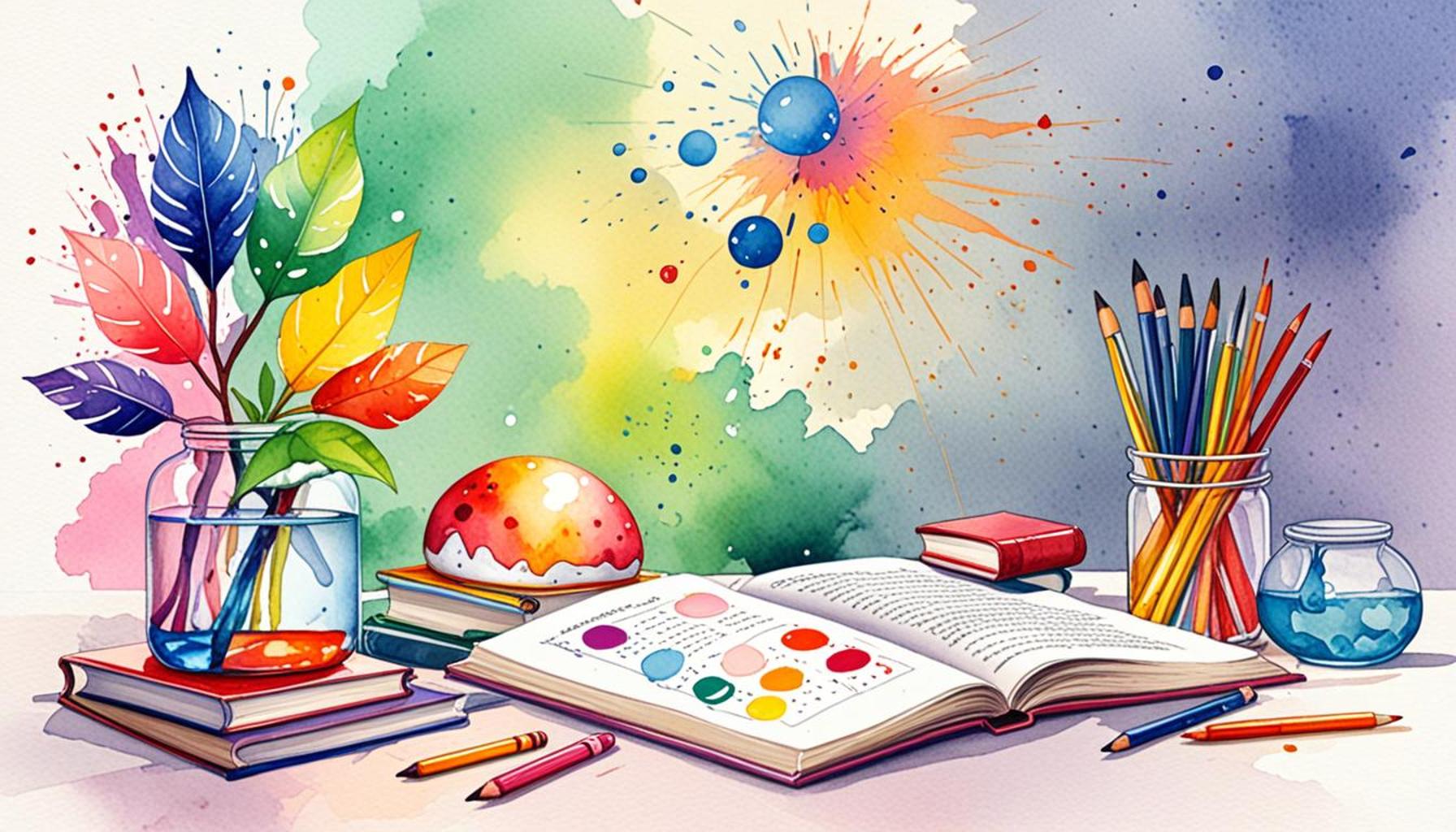Reflective Practice Techniques to Overcome Challenges and Improve Resilience

Understanding Reflective Practice
In today’s dynamic environment, the ability to adapt and rise above challenges is vital for both individual and communal progress. Reflective practice serves as an essential instrument for nurturing resilience, enabling individuals to turn their struggles into opportunities for growth and development. By actively engaging in self-evaluation and introspection, one can better understand their responses to adversity and refine their approach to obstacles.
Powerful Techniques for Reflection
Implementing effective reflective techniques requires intentionality and consistency. Here are three prominent strategies that can significantly enhance one’s ability to cope with challenges:
- Self-Assessment: This process involves regularly evaluating your actions and decisions. By asking critical questions about your choices, such as what worked, what didn’t, and why, individuals can gain deeper insights into their behavior and motivations. For instance, after a challenging project at work, consider reflecting on your role and what aspects you could improve for next time.
- Feedback Gathering: Actively seeking input from peers, mentors, and colleagues can illuminate blind spots in your thinking and provide alternative perspectives. In Nigeria’s collaborative work environments, this technique can be invaluable. Constructive feedback from a mentor, for example, can reveal how cultural dynamics influence workplace interactions.
- Journaling: Keeping a journal of thoughts, feelings, and experiences can help recognize patterns in behavior and emotional responses. This technique can be particularly useful in a diverse country like Nigeria, where various cultural contexts may affect how one reacts in different situations. Recording daily experiences can help individuals spot recurring themes in their challenges.
Deepening Self-Awareness and Strengthening Adaptability
These reflective practices not only promote a richer understanding of oneself but also foster enhanced adaptability to changing circumstances. In Nigeria’s rapidly developing socio-economic landscape, the ability to pivot in response to new challenges is crucial. Whether in urban centers grappling with modern pressures or rural communities facing traditional hurdles, employing reflective strategies can help unearth unique challenges associated with cultural and environmental factors.
The Journey of Resilience
Resilience is less about merely weathering the storm; it is about using adversity as a springboard for personal and professional enhancement. As you implement these reflective practices, you’ll discover that learning and growth accompany every challenge faced. By embracing a mindset focused on reflection and adaptation, individuals can not only survive but thrive in the face of difficulties, transforming obstacles into stepping stones toward success.
This article offers just a glimpse into the transformative power of reflective practice techniques. By actively engaging in these practices, you can cultivate a sturdy foundation of resilience that empowers you to navigate life’s challenges with confidence and clarity.
YOU MAY ALSO LIKE: Read read another article
Leveraging Reflective Practice for Personal Growth
To unlock the true potential of reflective practice techniques, one must dive deep into personal experiences, understanding how each challenge can serve as a critical lesson in resilience. This approach is not merely an exercise in hindsight; it is a proactive strategy for future readiness, particularly in a country as diverse and evolving as Nigeria. The ability to reflect means you are taking the time to analyze and learn from each encounter, facilitating growth that leads to improved responses in similar situations.
The Importance of Self-Assessment
Self-assessment remains a cornerstone of reflective practice. This technique compels individuals to formulate a personal inventory of strengths and weaknesses that shape their approach to challenges. In Nigeria, where competition is fierce and the landscape is ever-changing, conducting regular self-assessments can be instrumental. Consider instances such as preparing for presentations or tackling team projects. Asking oneself critical questions such as:
- What skills did I utilize effectively?
- Where did I struggle?
- What could I have done differently?
By dissecting past actions, individuals can pinpoint areas for enhancement, leading to more fruitful engagements in the future.
Value of Gathering Feedback
Feedback gathering amplifies the benefits of self-assessment. In Nigeria’s culturally rich environment, engaging with peers and mentors can reveal unique insights that might otherwise go unnoticed. For example, during team projects, soliciting opinions about communication and collaboration strategies can uncover blind spots, enhancing teamwork significantly. This is especially important in contexts that value communal relationships and collective success, such as in various Nigerian communities where harmony and mutual support are essential.
Journaling: A Personal Reflection Tool
Journaling stands out as a profound technique for reflection, offering a private platform to explore emotions and responses to challenges. In the Nigerian context, where cultural nuances shape interactions, keeping a journal can help individuals recognize emotional patterns and responses that may be influenced by their environment. By documenting daily experiences, reflections, and feelings, individuals build a repository of valuable insights. With time, this practice solidifies resilience by revealing trend patterns in behavior and understanding how specific challenges invoke different reactions.
The commitment to using these reflective practices does not merely end at introspection; it extends into actionable improvement, making it vital for anyone striving to navigate the complexities of personal and professional challenges in Nigeria. By integrating techniques such as self-assessment, feedback gathering, and journaling into daily routines, individuals can foster resilience that equips them to tackle various life’s hurdles head-on.
| Category | Advantages |
|---|---|
| Self-Awareness | Enhances emotional intelligence and allows individuals to identify personal triggers and stressors. |
| Problem-Solving Skills | Promotes innovative thinking and encourages exploration of alternative solutions to overcome challenges. |
| Resilience Building | Fosters adaptability by enabling individuals to learn from past experiences and adapt to future stressors. |
Reflective practice techniques are essential tools that empower individuals to overcome various challenges while enhancing resilience. Through systematic self-reflection, one can achieve a profound understanding of personal behaviors and emotions, leading to improved decision-making skills. This process involves examining situations critically, identifying patterns, and deriving valuable lessons that can be applied in the future. By developing self-awareness and enhancing emotional intelligence, individuals can effectively manage stress and navigate complex situations in both personal and professional contexts. Moreover, reflective practice encourages collaborative learning and the sharing of experiences, which can further enrich one’s perspective on problem-solving. Employing techniques such as journaling, peer discussions, and mindfulness exercises can significantly contribute to personal growth. Each of these methods provides a unique avenue for self-exploration, fostering a robust mindset equipped to tackle life’s inevitable challenges. Delving deeper into these practices can unveil transformative potential, positioning individuals not just to cope, but to thrive amidst adversity.
RECOMMENDED: Check out this similar article
Embracing Feedback Loops for Continuous Improvement
Another integral aspect of reflective practice is the creation of feedback loops. This technique enhances resilience by encouraging a cycle of learning through constant evaluation and adjustment. In Nigeria, where community feedback often shapes personal and professional life, establishing these loops can be particularly beneficial. Engaging in discussions with trusted colleagues or friends about experiences and challenges can unveil different perspectives and solutions to problems that might seem insurmountable. This communal approach to feedback not only builds stronger relationships but also fosters an environment where individuals can be open about their challenges, ultimately nurturing resilience.
Role-Playing as a Reflection Technique
Role-playing exercises provide a dynamic way to enhance reflective practice. By simulating challenging situations with peers or colleagues, individuals can view their reactions and decision-making processes from a new angle. This technique is particularly useful in multicultural settings, such as Nigeria, where social dynamics can be complex. For instance, participating in role-playing scenarios that reflect workplace conflicts or customer interactions can prepare individuals to handle similar situations effectively in real life. These exercises encourage participants to step outside their comfort zones, facilitating a deeper understanding of their responses and equipping them with strategies for future challenges.
Mindfulness and Its Impact on Resilience
The practice of mindfulness complements reflective techniques by grounding individuals in the present moment and enhancing self-awareness. In the hustle and bustle of everyday life in Nigeria, taking time to pause and reflect can seem daunting. However, incorporating mindfulness practices such as meditation or deep-breathing exercises into daily routines can drastically improve one’s capacity to manage stress and challenges. By being aware of emotional responses and physical sensations during challenging moments, individuals can navigate their reactions more thoughtfully, allowing for a more resilient mindset. Mindfulness fosters a space for reflection, enabling individuals to evaluate their experiences without judgment and cultivate a greater understanding of their personal and professional growth.
Cultivating a Growth Mindset
Embracing a growth mindset is pivotal in the journey of reflective practice. In Nigeria, where economic fluctuations and societal challenges often arise, adopting a mindset that values learning through experiences rather than seeing failure as an endpoint can significantly enhance resilience. Individuals can train themselves to view setbacks as opportunities for growth. By consistently reflecting on challenges and acknowledging the lessons learned, one can transform negative experiences into powerful motivators for progress. Encouraging dialogues around failure, rather than stigmatizing it, creates a culture supportive of reflective practices, ultimately fostering resilience among peers.
Incorporating these advanced reflective practice techniques not only broadens an individual’s toolkit for overcoming varied challenges but also enhances their ability to bounce back with a stronger, more resilient outlook. These practices invite exploration, encouraging individuals in Nigeria to engage consistently and meaningfully with both their challenges and successes. By acknowledging the rich tapestry of their experiences and learning from each interaction, individuals can cultivate the resilience necessary to navigate life’s uncertainties confidently.
RECOMMENDED: Check out this similar article
Conclusion: The Path to Resilience Through Reflective Practice
In summary, reflective practice techniques serve as invaluable tools in the journey to overcoming challenges and enhancing resilience. By integrating strategies such as feedback loops, role-playing, mindfulness, and cultivating a growth mindset, individuals in Nigeria can navigate their unique societal and economic hurdles with greater ease. The art of reflection fosters an environment of continued learning, transforming obstacles into opportunities for personal and professional growth.
As more Nigerians embrace the notion of sharing experiences and feedback within their communities, the collective strength of understanding and support will empower them to tackle adversities head-on. This communal approach not only builds resilience on an individual level but also nurtures a culture that prioritizes learning from both successes and setbacks.
Moreover, by committing to mindfulness practices, individuals can develop a deeper awareness of their emotional and physical responses, allowing for thoughtful navigation of challenging situations. The importance of adopting a growth mindset cannot be overstated, as this perspective inspires individuals to recognize that setbacks are not endpoints but rather stepping stones toward future achievements.
Ultimately, fostering a resilient mindset through reflective practice enriches the tapestry of personal experiences, encouraging a life lived with intention and adaptability. As you embark on this empowering journey, remember that every challenge faced is an opportunity to enrich your resilience, paving the way for a brighter and more resilient future.


